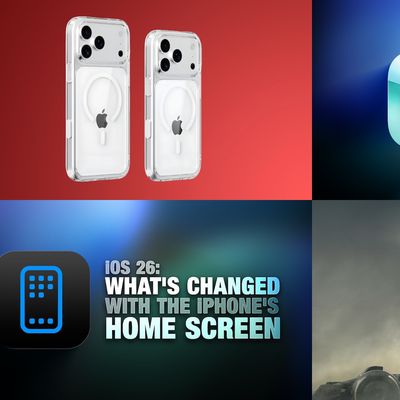European Lawmakers Want to Force All Smartphones to Have Same Charging Port, Apple Defends Lightning
With goals of reducing waste and increasing convenience, European lawmakers today will debate whether all smartphones, tablets, and other portable devices should have a standardized charging port such as USB-C.
At least some members of the European Parliament want "binding measures" that ensure one type of charger is compatible with all portable devices, as the European Commission's previous approach of merely "encouraging" tech companies to develop a standardized solution has "fell short of the co-legislators' objectives," according to a briefing on the European Parliament website today.

The proposed charging ports for portable devices include Micro-USB, USB-C, and the Lightning connector.
Nearly a year ago, Apple said regulations that would force all smartphones to have the same charging port would "freeze innovation," be "bad for the environment," and be "unnecessarily disruptive for customers."
More than 1 billion Apple devices have shipped using a Lightning connector in addition to an entire ecosystem of accessory and device manufacturers who use Lightning to serve our collective customers. We want to ensure that any new legislation will not result in the shipment of any unnecessary cables or external adaptors with every device, or render obsolete the devices and accessories used by many millions of Europeans and hundreds of millions of Apple customers worldwide. This would result in an unprecedented volume of electronic waste and greatly inconvenience users. To be forced to disrupt this huge market of customers will have consequences far beyond the stated aims of the Commission.
Beginning in 2009, Apple led industry efforts to work together to promote a common charging solution. And with the emergence of USB Type-C, we have committed alongside six other companies that all new smartphone models will leverage this standard through a connector or a cable assembly. We believe this collective effort by many of the industry’s leading companies is better for innovation, better for consumers and better for the environment.
A vote on the matter will be held in a forthcoming parliament session. While some members want the policy to be regulated, forcing companies like Apple to comply, there is still a possibility that it will be implemented with a voluntary approach, which could simply be ignored, according to the European Commission.
European lawmakers have been considering similar regulations since at least 2009.
Popular Stories
A new Apple TV is expected to be released later this year, and a handful of new features and changes have been rumored for the device.
Below, we recap what to expect from the next Apple TV, according to rumors.
Rumors
Faster Wi-Fi Support
The next Apple TV will be equipped with Apple's own combined Wi-Fi and Bluetooth chip, according to Bloomberg's Mark Gurman. He said the chip supports ...
Apple will launch its new iPhone 17 series in two months, and the iPhone 17 Pro models are expected to get a new design for the rear casing and the camera area. But more significant changes to the lineup are not expected until next year, when the iPhone 18 models arrive.
If you're thinking of trading in your iPhone for this year's latest, consider the following features rumored to be coming...
Apple's next-generation iPhone 17 Pro and iPhone 17 Pro Max are only two months away, and there are plenty of rumors about the devices.
Below, we recap key changes rumored for the iPhone 17 Pro models.
Latest Rumors
These rumors surfaced in June and July:A redesigned Dynamic Island: It has been rumored that all iPhone 17 models will have a redesigned Dynamic Island interface — it might ...
The long wait for an Apple Watch Ultra 3 is nearly over, and a handful of new features and changes have been rumored for the device.
Below, we recap what to expect from the Apple Watch Ultra 3:Satellite connectivity for sending and receiving text messages when Wi-Fi and cellular coverage is unavailable
5G support, up from LTE on the Apple Watch Ultra 2
Likely a wide-angle OLED display that ...
iPhone 17 Pro and iPhone 17 Pro Max models with displays made by BOE will be sold exclusively in China, according to a new report.
Last week, it emerged that Chinese display manufacturer BOE was aggressively ramping up its OLED production capacity for future iPhone models as part of a plan to recapture a major role in Apple's supply chain.
Now, tech news aggregator Jukan Choi reports...
The iOS 26 public beta release is quickly approaching, while developers have recently gotten their hands on a third round of betas that has seen Apple continue to tweak features, design, and functionality.
We're also continuing to hear rumors about the iPhone 17 lineup that is now just about right around the corner, while Apple's latest big-budget film appears to be taking off, so read on...




















